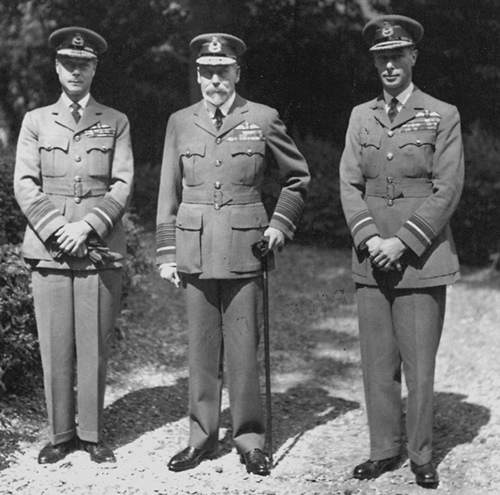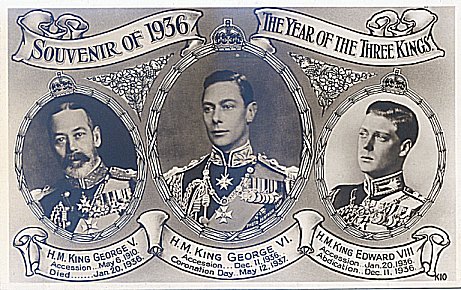Sixty Joyless De-Britished Uncrowned Commonpoor Years (1949-2009)
 Vice-Regal Saint: Remembering Paul Comtois (1895–1966), Lt.-Governor of Québec
Vice-Regal Saint: Remembering Paul Comtois (1895–1966), Lt.-Governor of Québec
Britannic Inheritance: Britain's proud legacy. What legacy will America leave?
English Debate: Daniel Hannan revels in making mince meat of Gordon Brown
Crazy Canucks: British MP banned from Canada on national security grounds
Happy St. Patrick's: Will Ireland ever return to the Commonwealth?
Voyage Through the Commonwealth: World cruise around the faded bits of pink.
No Queen for the Green: The Green Party of Canada votes to dispense with monarchy.
"Sir Edward Kennedy": The Queen has awarded the senator an honorary Knighthood.
President Obama: Hates Britain, but is keen to meet the Queen?
The Princess Royal: Princess Anne "outstanding" in Australia.
H.M.S. Victory: In 1744, 1000 sailors went down with a cargo of gold.
Queen's Commonwealth: Britain is letting the Commonwealth die.
Justice Kirby: His support for monarchy almost lost him appointment to High Court
Royal Military Academy: Sandhurst abolishes the Apostles' Creed.
Air Marshal Alec Maisner, R.I.P. Half Polish, half German and 100% British.
Cherie Blair: Not a vain, self regarding, shallow thinking viper after all.
Harry Potter: Celebrated rich kid thinks the Royals should not be celebrated
The Royal Jelly: A new king has been coronated, and his subjects are in a merry mood
Victoria Cross: Australian TROOPER MARK DONALDSON awarded the VC
Godless Buses: Royal Navy veteran, Ron Heather, refuses to drive his bus
Labour's Class War: To expunge those with the slightest pretensions to gentility
100 Top English Novels of All Time: The Essential Fictional Library
BIG BEN: Celebrating 150 Years of the Clock Tower
Sunday, 28 December 2008
Thursday, 25 December 2008
Wednesday, 24 December 2008
Old Father Christmas
Jolly old Saint Nick is as old as the Reformation. Today's merry old Santa came about as an allegorical response to joyless Puritans who condemned Christmas celebration as "trappings of popery" and the "rags of the Beast."  When England's Puritan rulers banned Christmas in 1647, pro-Christmas rioting broke out in several cities, and for weeks Canterbury was controlled by the rioters, who decorated doorways with holly and shouted royalist slogans. The Restoration of Charles II in 1660 ended the ban, but many clergymen still disapproved of Christmas celebration.
When England's Puritan rulers banned Christmas in 1647, pro-Christmas rioting broke out in several cities, and for weeks Canterbury was controlled by the rioters, who decorated doorways with holly and shouted royalist slogans. The Restoration of Charles II in 1660 ended the ban, but many clergymen still disapproved of Christmas celebration.
The symbolic personification of Christmas as a merry old figure began as resistance to Puritan criticism of observing the annual Christmas feast. He is "old" because of the antiquity of the feast itself, which its defenders saw as a good old Christian custom that should be kept. Allegory was popular at the time, and so "old Christmas" was given a voice to protest his exclusion, along with the form of a rambunctious, jolly old man.
In the British tradition, he was referred to as "Sir Christmas" or "Lord Christmas" during the Victorian era. Today he is affectionately known as Father Christmas.
Read the full article >>
Saturday, 20 December 2008
The First Royal Christmas Broadcast
 With a hoarse voice as if roughened by weather, King George V delivered the first Royal Christmas Broadcast - written by author and poet Rudyard Kipling - from a study at Sandringham House, Norfolk, on Christmas Day 1932.
With a hoarse voice as if roughened by weather, King George V delivered the first Royal Christmas Broadcast - written by author and poet Rudyard Kipling - from a study at Sandringham House, Norfolk, on Christmas Day 1932.
The text, of timeless simplicity, bore the hallmark of the master: "I speak now from my home and from my heart to you all; to men and women so cut off by the snows, the desert, or the sea, that only voices out of the air can reach them."
In emphatic tones and the accent of an Edwardian country gentleman, it sufficed to carry his words to world-wide acclaim. With its very first delivery, the Christmas broadcast from Sandringham had become an institution.
Legend has it that the King used a gold microphone. It was in fact a standard one encased in Australian walnut. A thick cloth covered the table to deaden the sound of rustling paper, for the King's hands were known to tremble with nervousness. He spoke from a little room under the stairs: "I broadcast a short message of 251 words to the whole Empire from Francis' room."
Although moved by its reception, the King had no wish to repeat his triumph. It was an ordeal, he complained, which spoilt his Christmas. Some of his courtiers also thought (correctly, as it turns out) that an annual broadcast would lose its impact through familiarity. The politicians were of course encouraging, even if the King was unimpressed.
He agreed to continue only when shown a batch of appreciative letters throughout the Empire. The broadcasts of 1933, 1934 and 1935 never quite achieved the sublime appeal of 1932; perhaps the replacement of Kipling by Archbishop Lang as the principal draftsman exchanged magic for mere eloquence. Yet all who gathered year after year for the King's Christmas message awaited the voice of a friend.
Source: King George V, by biographer Kenneth Rose.
Photo © Press Association
Read the full article >>
Wednesday, 26 December 2007
Tuesday, 25 December 2007
The Queen's 50th Christmas Broadcast
Introducing the Royal Channel on YouTube "Her Majesty the Queen sends her Christmas broadcast to her peoples throughout the Commonwealth..." Click here for the 1957 and 2007 Christmas broadcasts.
"Her Majesty the Queen sends her Christmas broadcast to her peoples throughout the Commonwealth..." Click here for the 1957 and 2007 Christmas broadcasts.
Read the full article >>
Sunday, 23 December 2007
"The Subtle Corruption of the Cynics"

Elizabeth in 1957, at 31, during her Christmas address, the first time the traditional message was televised.
THE MONARCHY MEETS YOUTUBE. Featuring the 1957 Christmas Broadcast, footage from the Queen Mother's Wedding in 1923 and the 1953 Coronation. While media reports have emphasized the historic significance of the 1957 broadcast, the first to be made on television, its most striking aspect is the text itself. Her Majesty's Christmas addresses have sometimes been criticized as overly cautious, meditations on unquestioned truisms. This is too harsh. Being Head of State her comments must carry their message in a subtle and non-political way; their relevance being in no way diminished by this necessity. Below are some choice passages from the address:
But it is not the new inventions which are the difficulty. The trouble is caused by unthinking people who carelessly throw away ageless ideals as if they were old and outworn machinery. They would have religion thrown aside, morality in personal and public life made meaningless, honesty counted as foolishness and self-interest set up in place of self-restraint.
At this critical moment in our history we will certainly lose the trust and respect of the world if we just abandon those fundamental principles which guided the men and women who built the greatness of this country and Commonwealth.
Today we need a special kind of courage, not the kind needed in battle but a kind which makes us stand up for everything that we know is right, everything that is true and honest. We need the kind of courage that can withstand the subtle corruption of the cynics so that we can show the world that we are not afraid of the future.
It has always been easy to hate and destroy. To build and to cherish is much more difficult. That is why we can take a pride in the new Commonwealth we are building.
Read the full article >>
How the Republicans stole Christmas
When it comes to celebrating and honouring the traditional festivities of Christmas, Puritans and Republicans have a record worthy of the Grinch. Selected passages from Christmas - Wikipedia:
The English Republic and Reformation
During the Reformation, some Protestants condemned Christmas celebration as "trappings of popery" and the "rags of the Beast". The Roman Catholic Church responded by promoting the festival in an even more religiously oriented form. Following the Parliamentary victory over King Charles I during the English Civil War, England's Puritan rulers banned Christmas, in 1647. Pro-Christmas rioting broke out in several cities, and for several weeks Canterbury was controlled by the rioters, who decorated doorways with holly and shouted royalist slogans. The Restoration of 1660 ended the ban, but many of the Nonconformist clergy still disapproved of Christmas celebrations, using Puritan arguments. In Colonial America, the Puritans of New England disapproved of Christmas; its celebration was outlawed in Boston from 1659 to 1681. At the same time, Christian residents of Virginia and New York observed the holiday freely. By the 1820s, sectarian tension in England had eased and British writers began to worry that Christmas was dying out. They imagined Tudor Christmas as a time of heartfelt celebration, and efforts were made to revive the holiday. Charles Dickens' book A Christmas Carol, published in 1843, played a major role in reinventing Christmas as a holiday emphasizing family, goodwill, and compassion over communal celebration and hedonistic excess.
The American Republic and Revolution
Christmas fell out of favor in the United States after the American Revolution, when it was considered an English custom. Interest in Christmas in America was revived in the 1820s by several short stories by Washington Irving appearing in his The Sketch Book of Geoffrey Crayon and "Old Christmas", and by Clement Clarke Moore's 1822 poem A Visit From St. Nicholas (popularly known by its first line: Twas the Night Before Christmas). Irving's stories depicted harmonious warm-hearted holiday traditions he claimed to have observed in England. Although some argue that Irving invented the traditions he describes, they were widely imitated by his American readers. The poem A Visit from Saint Nicholas popularized the tradition of exchanging gifts and seasonal Christmas shopping began to assume economic importance. In her 1850 book "The First Christmas in New England", Harriet Beecher Stowe wrote a character who complained that the true meaning of Christmas was being lost in a shopping spree. Christmas was declared a United States Federal holiday in 1870, signed into law by President Ulysses S. Grant.
Read the full article >>
Saturday, 22 December 2007
Her Majesty's First Christmas Broadcast
 The Queen made her first Christmas Day Broadcast to the peoples of the United Kingdom and the Commonwealth from Sandringham House, Norfolk, 1952.
The Queen made her first Christmas Day Broadcast to the peoples of the United Kingdom and the Commonwealth from Sandringham House, Norfolk, 1952.
Her Majesty asked that people pray for her on the day on her coronation, which was to come the following year - on 2 June, 1953 - and to ask God to give her wisdom and strength, "...that I may faithfully serve Him and you, all the days of my life".
Little remembered is that in the following year, the Queen made her Christmas Broadcast from Government House in Auckland, New Zealand.
Alas Christmas 1953 was the first and only time that the Royal Christmas Broadcast has been done outside the United Kingdom.
Photo © Press Association
Read the full article >>












































.gif)

.gif)














































































































